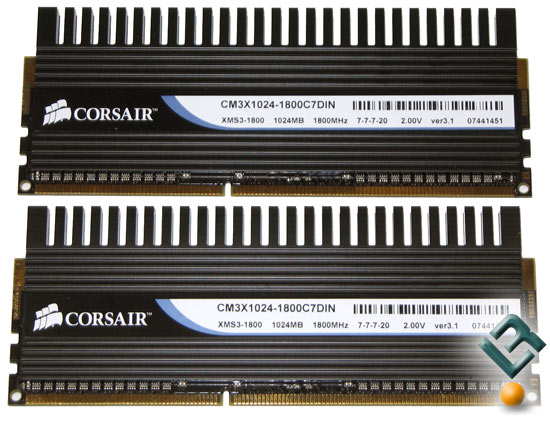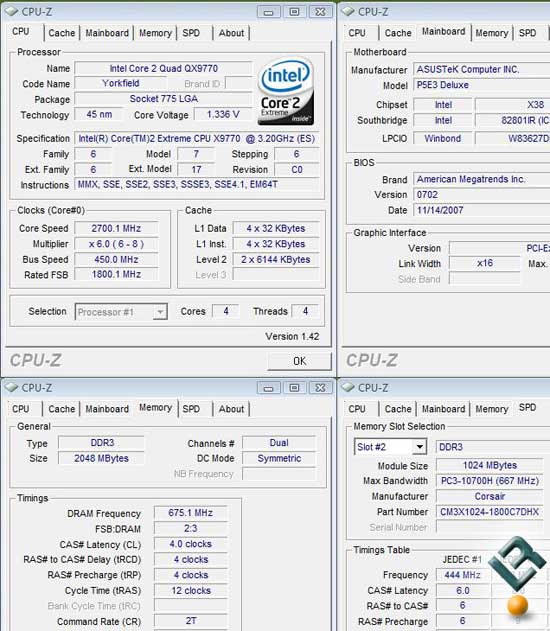Tight CL4 Timings On DDR3 Memory Is Possible!
DDR3 1333MHz Memory at 4-4-4-12 Timings?
When I first looked at various DDR3 memory modules back in July they were running 1333MHz and had timings that ranged from 7-7-7-20 to 9-9-9-24, which didn’t sound too impressive to enthusiasts. For years lower timings have played a key role when it came to performance, but with DDR3 frequency is more important. These days nearly all enthusiast memory companies offer high end memory kits at clock frequencies of 1800MHz and beyond at impressive CL7 or CL8 timings. In just a few months performance memory companies have come out with faster parts and have managed to keep the memory timings the same. The timings haven’t gotten any lower though and even today people shrug off DDR3 when they hear the timings even though comparing DDR2 to DDR3 by timings is not the proper thing to do.

Just recently Corsair Memory introduced a new 1800MHz CL7 memory kit and while characterizing the kit I noticed that it really loves low timings. This part is rated at 1800MHz with 7-7-7-20 timings, but I also test every kit that is sent to Legit Reviews across the board to see how it performs and to see if anything interesting pops up. This time around something very interesting happend – it posted and ran with CL4, CL5 and CL6 timings!

I was testing the new Corsair DDR3 kit at 450MHz Front Side Bus (FSB) and was able to lower the memory divider to run 1350MHz at 4-4-4-12 timings! Finally DDR3 has been able to reach tight timings! The ASUS P5E3 Deluxe motherboard with BIOS 0702 was used for testing and it proved to be a great choice. The Intel X38 Express powered board was able to run these tight timings with no problems, but needed the voltage increased from 2.0V to 2.3V for it to become fully stable. I tried to reach 4-3-3 (the lowest possible timings on teh ASUS P5E3) and while the board posted and loaded Windows Vista it would blue screen when the desktop loaded. Excited about reaching these tight timings I contacted the engineers at Corsair, where they too were unaware of the modules being able to run at CL4 timings. All the memory companies have been focused on high clock frequencies and not tight timings, so this made sense. Are they right though?

Comments are closed.